2016

16/12 2016
N30x31 /// I.M. Jeroen Mettes
Een avond over het werk van Jeroen Mettes

9/12 2016
Een economie van seks
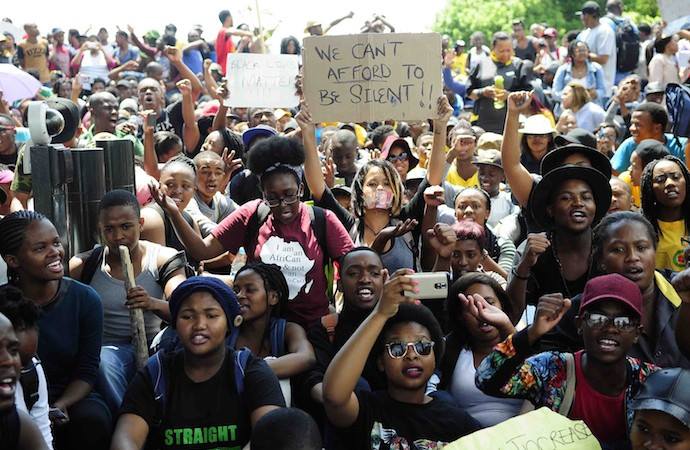
2/12 2016
Black Revolutionaries: Reading Group 2
The second instalment of Perdu's monthly reading group.
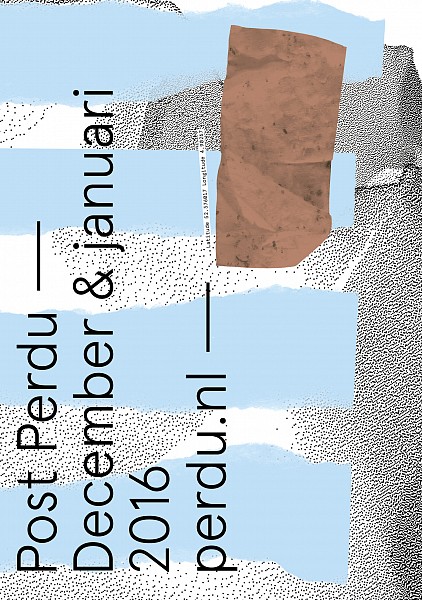
1/12 2016 — 31/12 2016
Post Perdu
vormgegeven door Anja Groten

30/11 2016
Filmvertoning Verloop van jaren over Remco Campert
Gastprogramma: met film, voordracht en gesprek

11/11 2016
Black Revolutionaries: Reading Group 1
The first instalment of Perdu's monthly reading group.
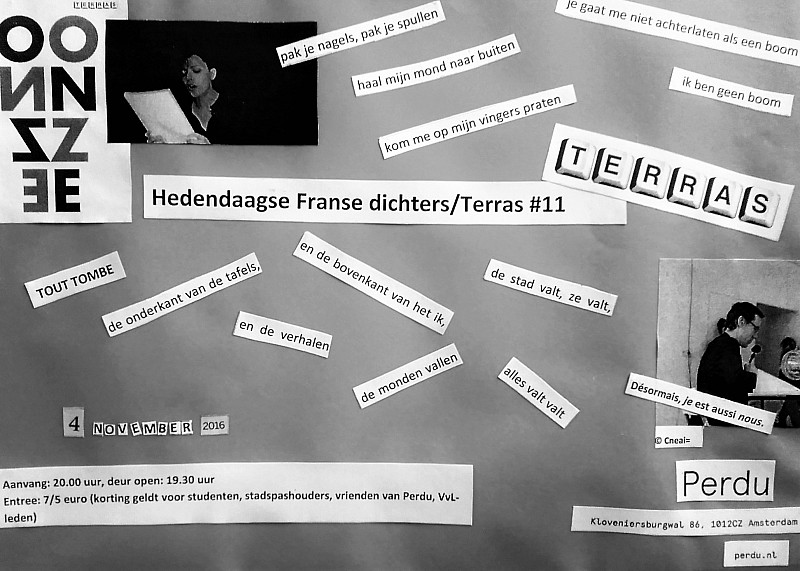
4/11 2016
Hedendaagse Franse dichters / Terras #11 ‘Onze’
In samenwerking met Terras, dat in het nummer 'Onze' de nieuwe Franse poëzie verkent.
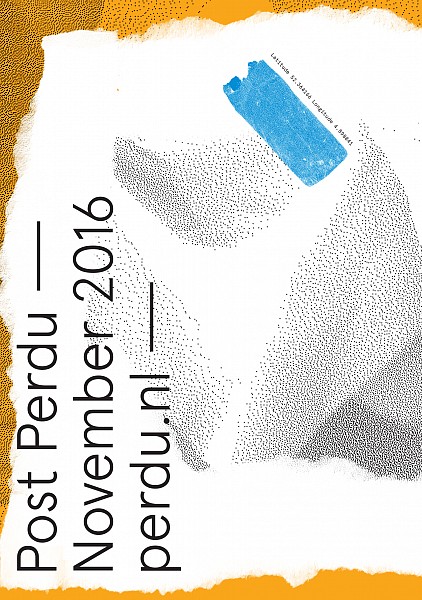
1/11 2016 — 30/11 2016
Post Perdu
vormgegeven door Anja Groten
28/10 2016
De ontdekking van Clarice Lispector
Deze avond laat de stem en zang van Clarice Lispector klinken.

15/10 2016
Homo//communis
In samenwerking met Brainwash Festival
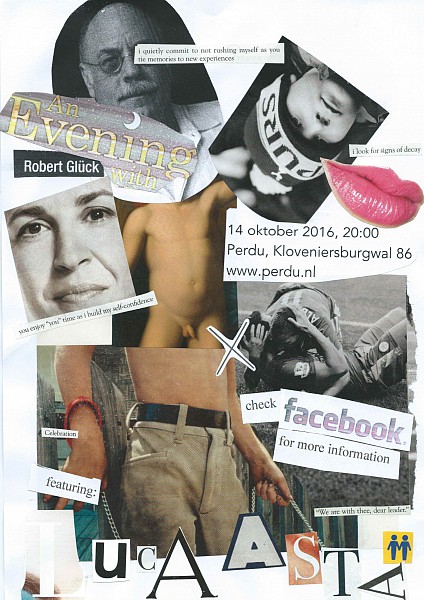
14/10 2016
An Evening with Robert Glück
10/10 2016
Commitment and Poetry
with Najwan Darwish and Mia You
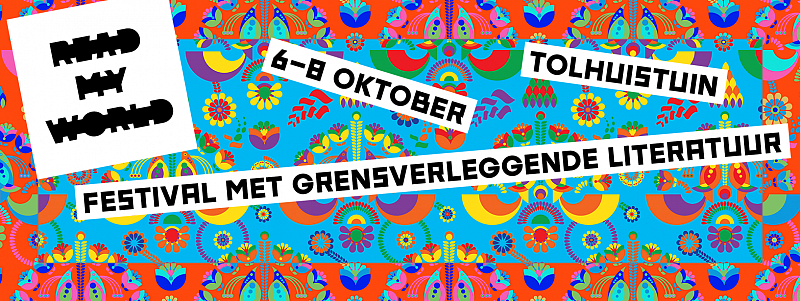
6/10 2016 — 8/10 2016
Read My World 2016
Festival met grensverleggende literatuur - editie Polen en Oekraïne
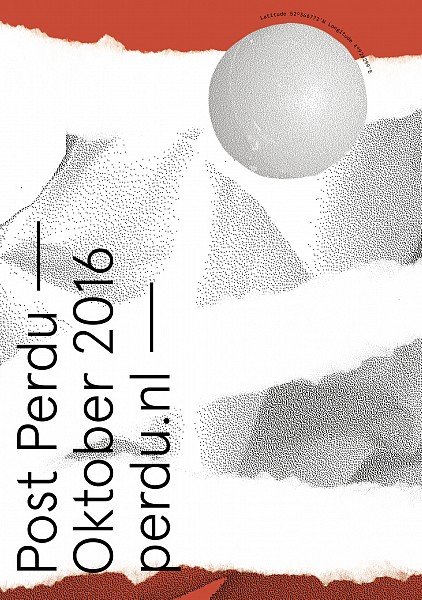
1/10 2016 — 31/10 2016
Post Perdu
vormgegeven door Anja Groten

16/9 2016
De Lezer XL: Dichters interviewen hun lezers
Avondenprogramma

6/9 2016 — 9/9 2016
Amsterdam Fringe Festival: Mrs. Picasso
Gastprogramma
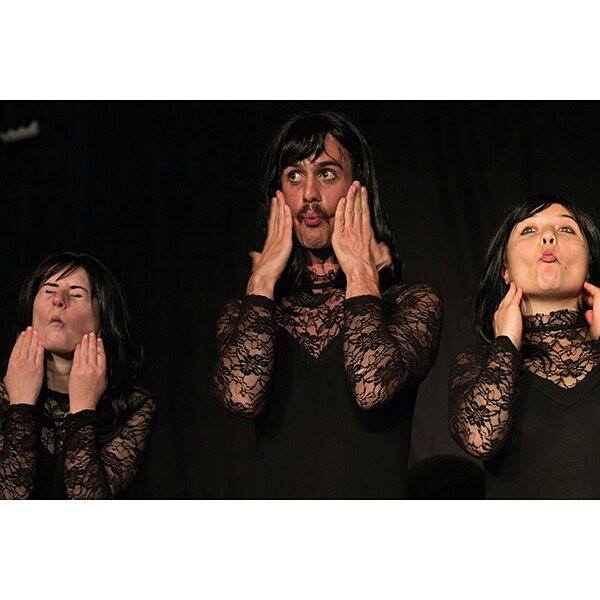
6/9 2016 — 9/9 2016
Best of South Africa Fringe: Father, Father. Father!
Gastprogramma
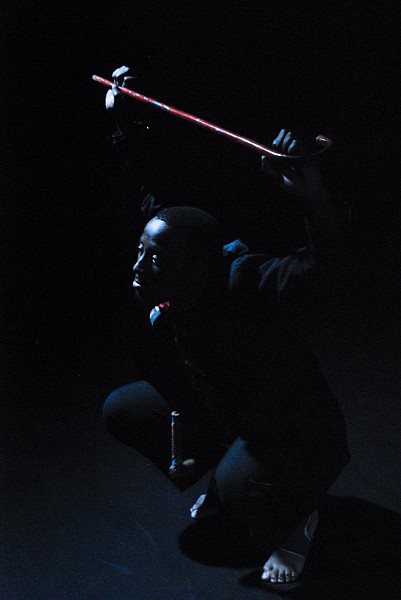
1/9 2016 — 4/9 2016
Best of South Africa Fringe: Kafka's Ape
Gastprogramma

1/9 2016 — 11/9 2016
Amsterdam Fringe Festival: Stil
Gastprogramma
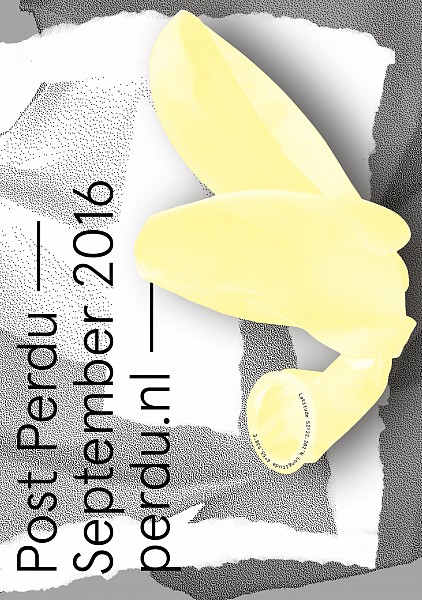
1/9 2016 — 30/9 2016
Post Perdu
vormgegeven door Anja Groten
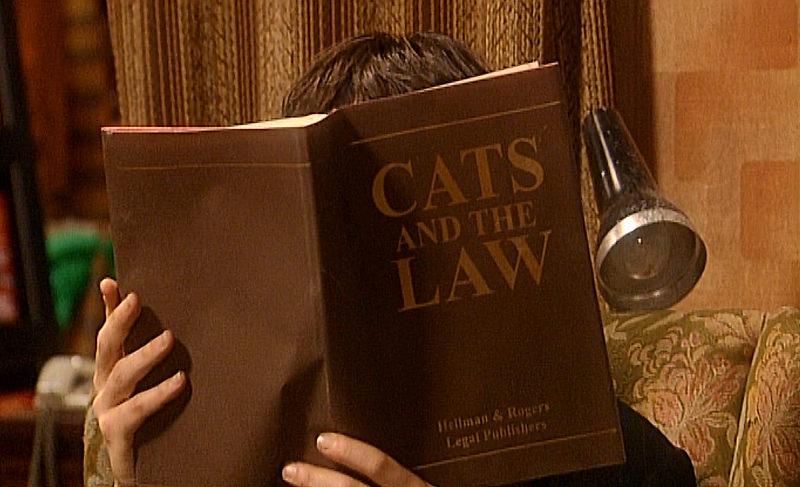
1/7 2016 — 1/7 2016
Een plus een is meer
Eindpresentatie Perdu schrijfworkshop
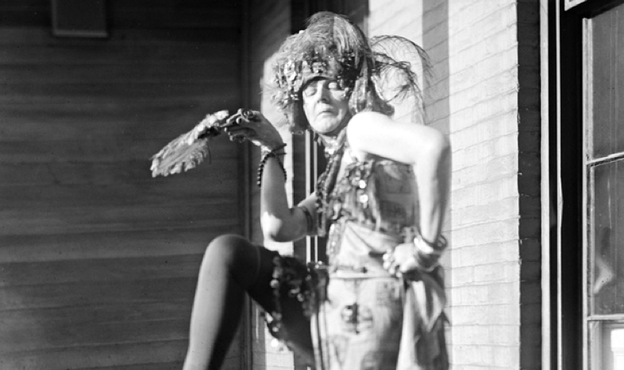
24/6 2016
100 Jaar Dada
Eindfeest seizoen 2015/16

20/6 2016
Barbaren & Co lezen Heiner Müller
Macbeth
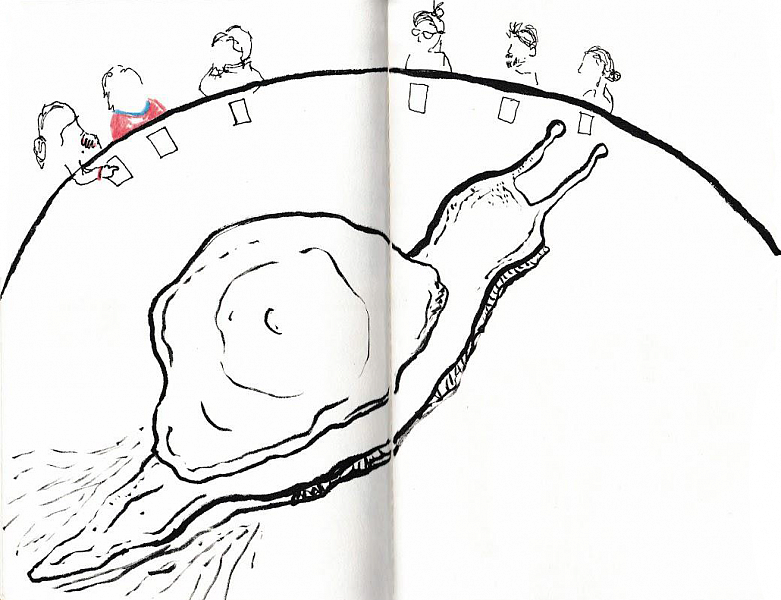
18/6 2016
Nood en Noodzakelijkheid
When the Events have settled
17/6 2016
Poolse dichters: Jaś Kapela en Joanna Mueller
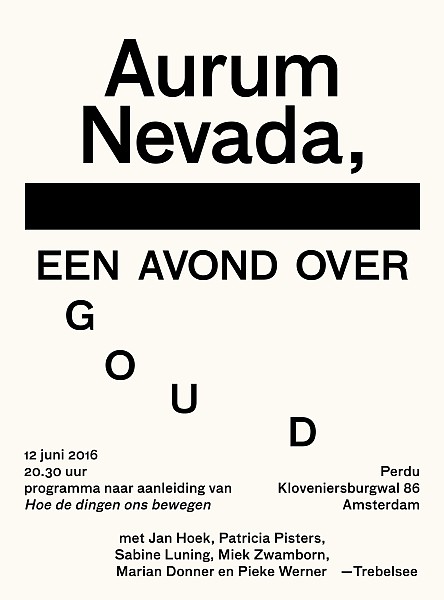
12/6 2016
Aurum Nevada, een avond over goud

11/6 2016
Wie heeft een middelpunt nodig
Gastprogramma: bundelpresentatie Anouk Smies
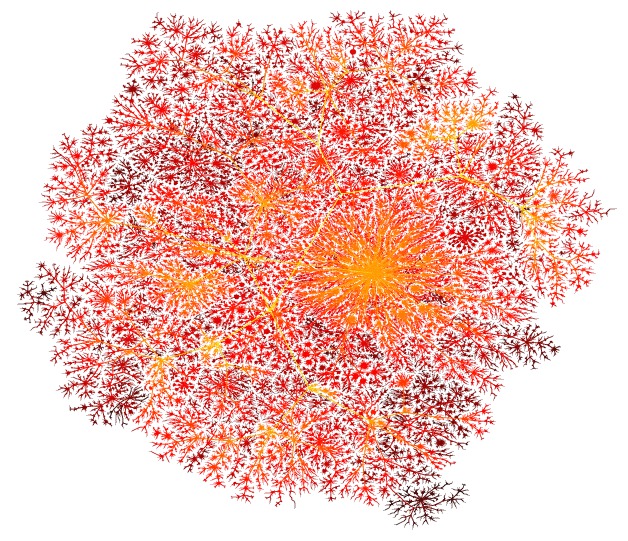
10/6 2016
Literatuur in tijden van informatie-overvloed
3/6 2016
Peter Gizzi & Matvei Yankelevich
Perdu welcomes Peter Gizzi and Matvei Yankelevich who will read from their poetry and participate in a panel discussion.
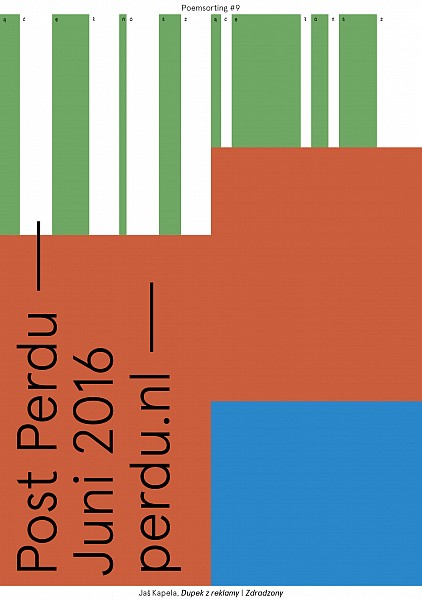
1/6 2016 — 30/6 2016
Post Perdu
vormgegeven door Anja Groten
31/5 2016
A Negation That Wasn’t Erased
Re-scheduled to May 31 @ Café Mezrab

28/5 2016 — 5/6 2016
Komm
Gastprogramma: een montagevoorstelling over waanzin, liefde en overgave
20/5 2016
We Need an Erotics of Art
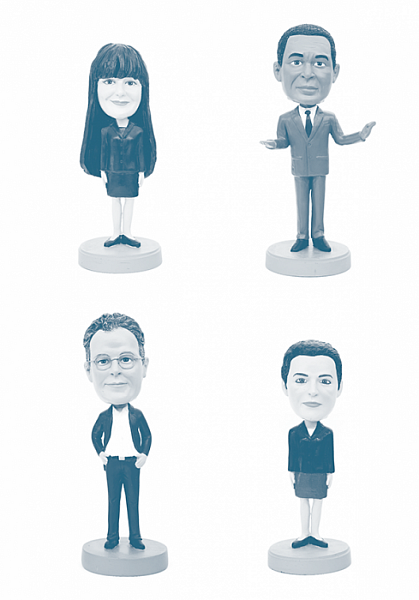
18/5 2016
Kunstlicht - The Artist's Persona
Gastprogramma: Lancering Kunstlicht - Impose Enact en Perform Present

17/5 2016
Felix & Sofie
Gastprogramma: Hegel, totalitair of bescheiden?
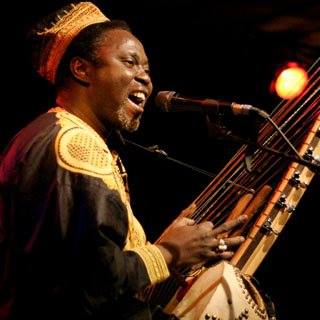
14/5 2016
“Vieren dat we allemaal gek zijn”
Gastprogramma: Ubuntu en westerse psychiatrie

12/5 2016 — 13/5 2016
Transmission of Tunes and Tales
Guest programme: symposium

11/5 2016 — 18/5 2016
Bericht uit de boekhandel
Tenny Frank over Martin van den Esschert, Eli Scheen, Patty Scholten, Bert Schierbeek, J. Slauerhoff en Elvis Peeters
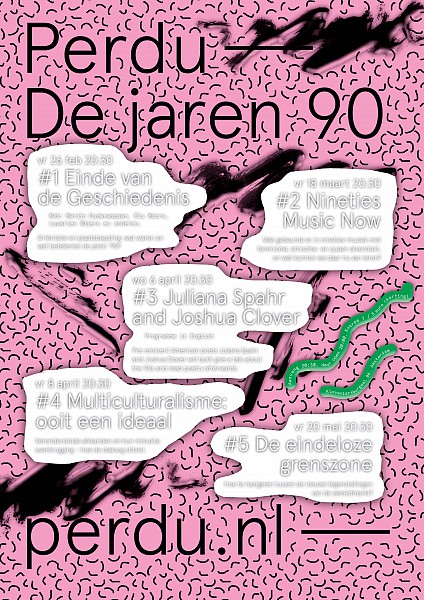
6/5 2016
De Jaren 90 V: De eindeloze grenszone

4/5 2016
Theater na de dam 2016
Barbaren en Co leest na de dodenherdenking

1/5 2016 — 31/5 2016
Post Perdu
vormgegeven door Anja Groten
29/4 2016
Two Palestinian Poets
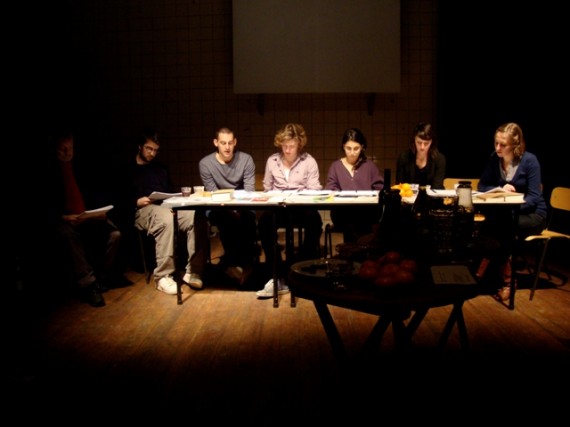
25/4 2016
Barbaren & Co lezen William Shakespeare
Troilus en Cressida

22/4 2016
Kanonnenvlees
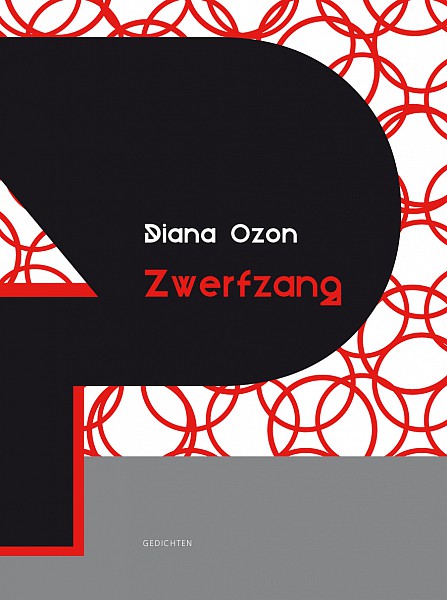
20/4 2016
Een doos vol poëzie naar Amsterdam
Gastprogramma: tournee Uitgeverij Passage, met als hoofdgast Diana Ozon

19/4 2016
Felix & Sofie
Gastprogramma: De narratieve mens
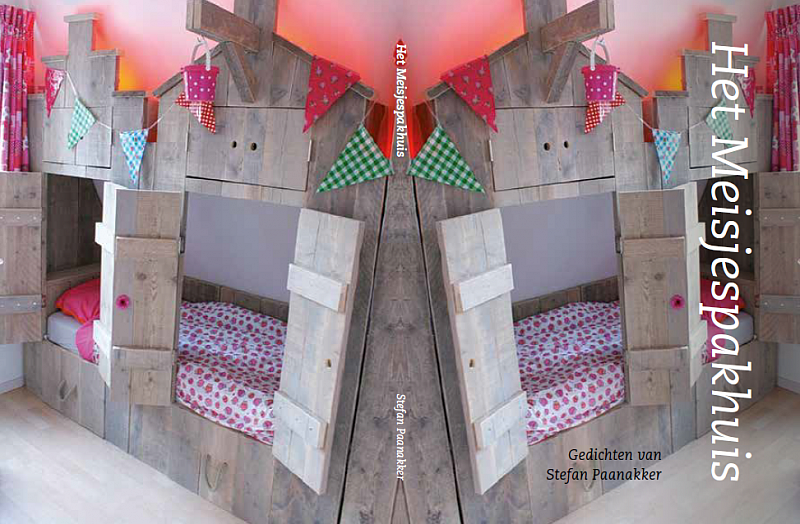
17/4 2016
Het Meisjespakhuis
Gastprogramma: bundelpresentatie Stefan Paanakker
15/4 2016
Poëzie en het culturele verschil

8/4 2016
De jaren 90 IV: multiculturalisme, ooit een ideaal
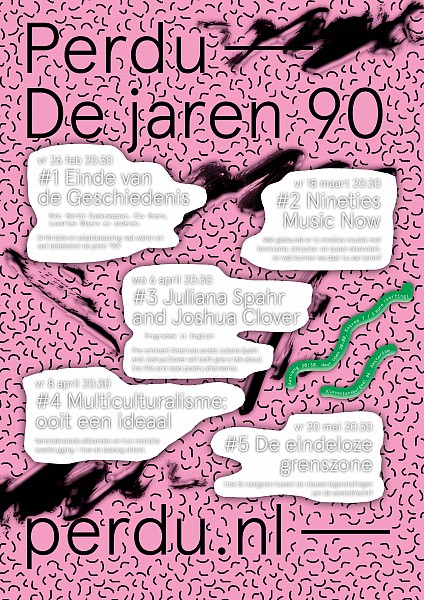
6/4 2016
De jaren 90 III: Juliana Spahr en Joshua Clover

1/4 2016 — 30/4 2016
Post Perdu
vormgegeven door Anja Groten

30/3 2016
Ode aan de liefde
Gastprogramma: Een avond over de heruitvinding van de liefde

25/3 2016
Biocentric Readings
21/3 2016
Barbaren en Co lezen Brecht, Müller en Terpstra/Dam
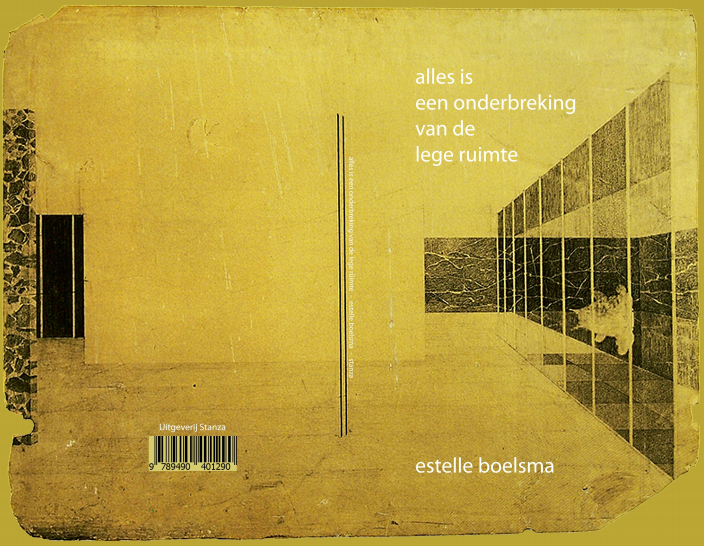
20/3 2016
alles is een onderbreking van de lege ruimte
Gastprogramma: Bundelpresentatie Estelle Boelsma

18/3 2016
De Jaren 90 II: Nineties Music Now

15/3 2016
Felix & Sofie
Gastprogramma: De nieuwe linkse filosofie?

11/3 2016
Twee Dichters V
B. Zwaal & Astrid Lampe
5/3 2016
Ubuntu en Nelson Mandela
Gastprogramma: Boekpresentatie door Henk Haenen
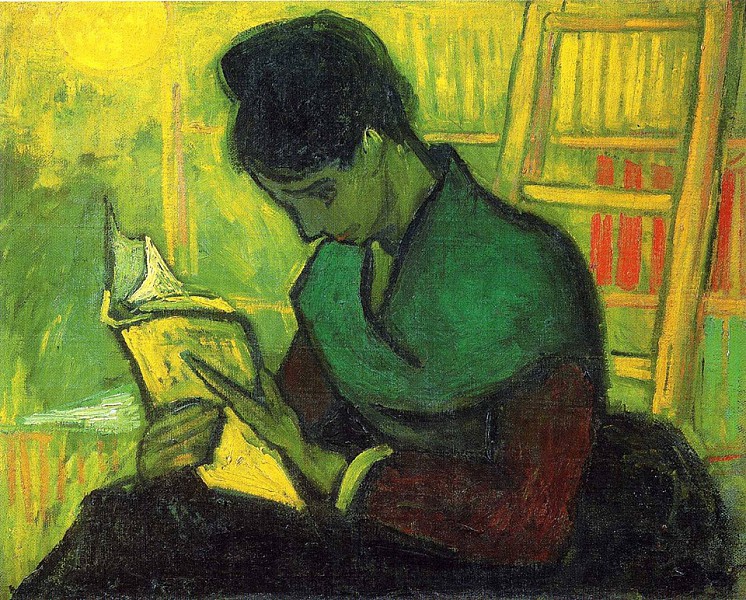
4/3 2016 — 5/3 2016
De Lezer XII
Met Saskia Stehouwer en Mathijs Gomperts

1/3 2016 — 31/3 2016
Post Perdu
vormgegeven door Anja Groten

29/2 2016
Barbaren & co lezen William Shakespeare
A Winter's Tale
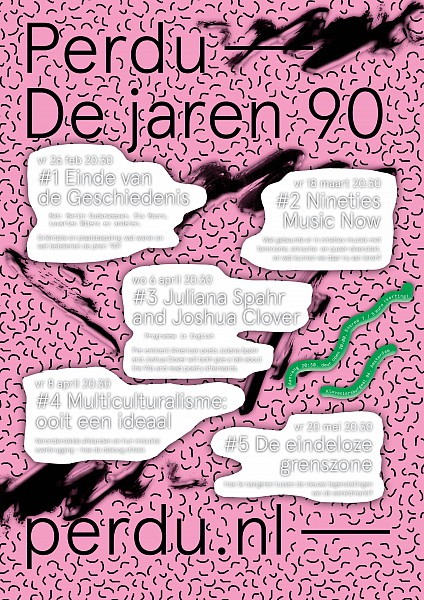
26/2 2016
De Jaren 90 I: Het Einde van de Geschiedenis
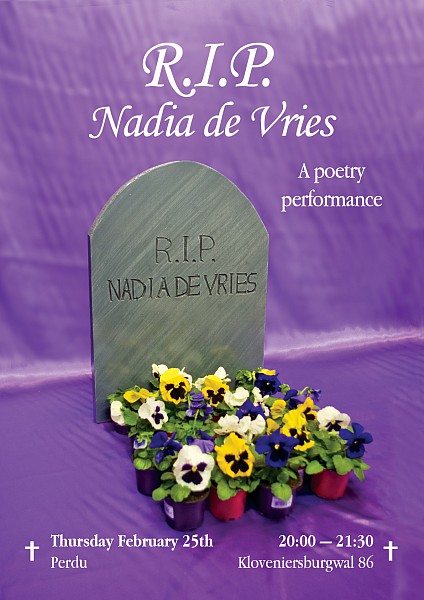
25/2 2016
R.I.P. Nadia de Vries
Gastprogramma: Bundelpresentatie

19/2 2016
Reader's Block
Het werk van David Markson

16/2 2016
Felix & Sofie
Gastprogramma: Klassieke denkers en de dood
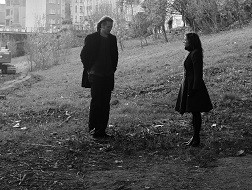
13/2 2016
De kleine eva uit de kromme bijlstraat
Gastprogramma: Toneelvoorstelling naar de klassieker van Boon
12/2 2016
"En langzaam word ook ik weer geheel virtueel."
In Memoriam Sybren Polet
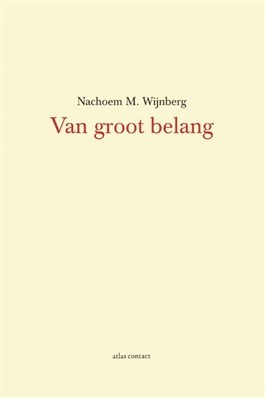
11/2 2016 — 18/2 2016
Bericht uit de boekhandel
Tenny Frank over Nachoem M. Wijnberg
2/2 2016 — 3/2 2016
Babelsprech
uitwisseling tussen opkomende dichters uit Duitsland, Oostenrijk, België en Nederland

1/2 2016 — 29/2 2016
Post Perdu
vormgegeven door Anja Groten
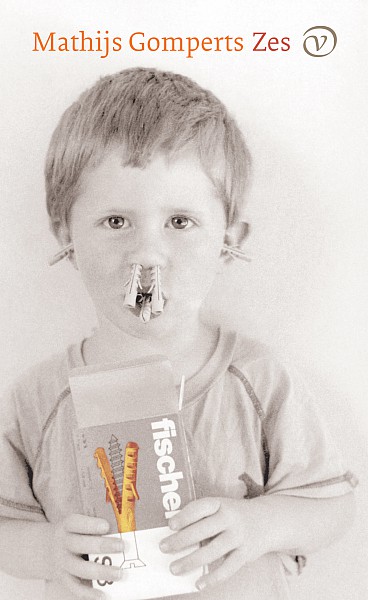
30/1 2016
Bundelpresentatie Zes
Gastprogramma: Poëziedebuut van Mathijs Gomperts
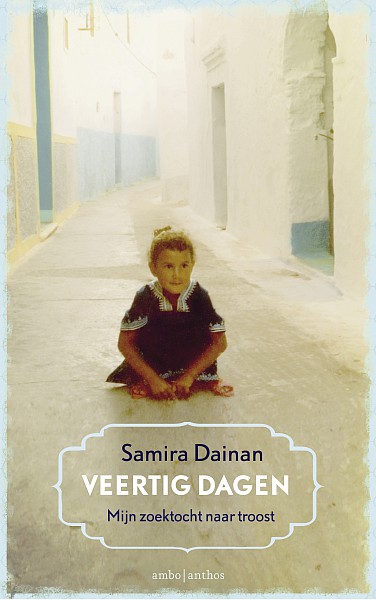
29/1 2016
Boekpresentatie
Veertig dagen
Gastprogramma: Samira Dainan over haar zoektocht naar troost

28/1 2016
30+30 Dichtersmarathon 2016
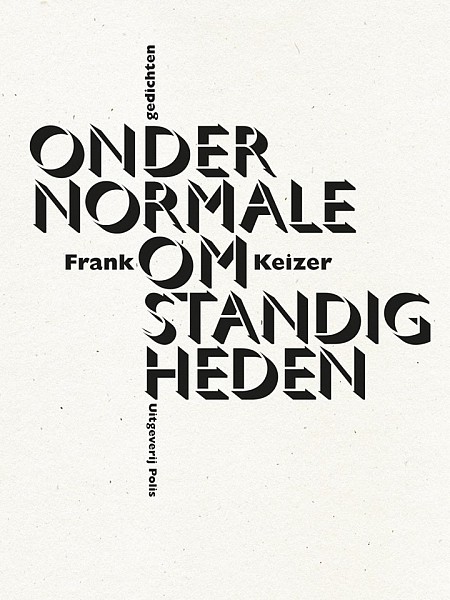
25/1 2016
Boekpresentatie Onder normale omstandigheden
Gastprogramma: Poëziedebuut van Frank Keizer
22/1 2016
VSB-Poëzieprijs bij Perdu
Genomineerden Pieter Boskma en Geert van Istendael lezen voor en worden geïnterviewd
11/12 2015 — 10/2 2015
Bericht uit de boekhandel
Tenny Frank over Dada